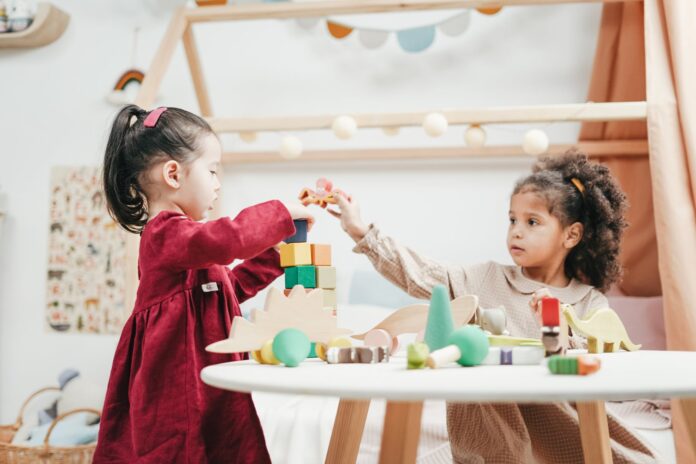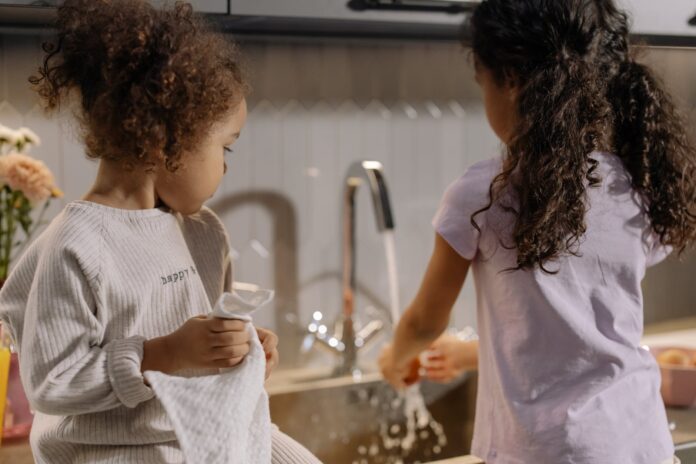Your child’s ability to function as an adult inevitably reflects on you, their parent. You aren’t in complete control of how your child makes the journey from adolescence to adulthood.
But you are their primary influence along the way. So take stock of the things you wish you’d known. To get started, check out these eight life skills your child should know before they move out on their own.
1. How to Make Friends

Networking begins on the playground and ends in the boardroom. The ability to meet and befriend new people is a skill that repays itself over time. Teach your kid how to break the ice in any situation.
Coach them on good posture, confident eye contact, and making a clear, respectful introduction. Teach them how to keep a conversation bubbling by finding commonalities and building off clues their conversation counterpart provides. Before you know it, your child will build a network of friends before your eyes.
2. Effective Time Management
You don’t want your kid to wing it wheno learning how to manage their time.
Schoolwork, social time, and their careers will all depend on their ability to effectively manage it. Start early in easy, approachable ways. One way you can integrate time management teachings is by helping your child manage their screen time.
Digital devices are essential for daily life and communication these days. Chances are your kid has a device or kids smartwatch. Work with them to develop time limits and teach them how to hold them. Not only will this help them manage time well, but it will also teach them lifelong healthy boundaries around technology.
3. Personal Finance and Investing

Starting in life without a good financial foundation can be devastating. Help your child learn about personal finance and investing early. First, help them get familiar with what real-life costs are and how much income certain jobs bring in. It may initially feel uncomfortable to talk about salary and expenses with your kid. But remember, you don’t want them to turn 18 and be completely oblivious to how they should manage their day-to-day finances.
Have age-appropriate conversations about money. Once they are a little older, you can relate basic investment principles to your child. Consider how you can match up what they’re covering in school, like graphs and charts, to your investment portfolio. Discuss with them the importance of planning for the future.
4. Conflict Resolution
If there is one certainty in life, it’s that there will always be a conflict to resolve. Either at school, home or at youth center, they will need this skill. Teaching your child healthy ways to resolve conflicts among friends and classmates is essential to emotional regulation and professional success. Help them develop the skills they need to handle whatever life throws at them.
The foundation of conflict resolution is active listening. Help them identify their feelings and how to read others involved in their interactions. Teach them how to use language that prioritizes how the situation is making them feel. This approach works to ease tension as opposed to becoming accusatory when trying to work toward a resolution. With conflict management skills on their side, they can navigate nearly any situation.
5. Basic Home and Car Maintenance

One day, you’re living at your parents’ home or a dorm, and the next day you own your own house. Along the way, it’s entirely possible no one gave you the 411 on how to take care of it. The same goes for your car. Often people acquire these high-maintenance items like homes and cars without any training.
Teach your child the basics of what type of maintenance is needed for their home and car.
Help them learn how to do some of it themselves. It’s impractical to expect that your child would know how to fix everything with a home or car. Instead teach them what to look for.
Having a basic understanding of what sounds and looks wrong will help them know when to call a professional. Deferred maintenance doesn’t do anyone any favors and could result in a safety issue or expensive repair.
6. Culinary Arts
Takeout and delivery can make busy nights easier. But understanding how to cook basic meals, shop for nutritious food, and ensure food safety is critical to surviving adulthood.
When your child grows up, they will be in charge of their food budget. Even if their plan involves grabbing fast food for every meal, take a pause. It’s a recipe for budgetary and digestive disasters to rely solely on restaurant fare.
Equip your child with the life skill of cooking to the best of your ability. Even if you aren’t the world’s greatest chef, see if other family members would want to get involved. This is an opportunity to teach your child an essential skill, and it could also result in some much-needed time together. As our kids get older, they may pull away from more traditional family gatherings in exchange for time with friends. Create lasting memories when you can.
7. Nutrition and Active Living

We’re living in a time where there’s a lot of conflicting and divisive information about nutrition and wellness online. It seems like every personal trainer claims to be a guru. It’s common to see extreme suggestions that may, in reality, be incredibly unhealthy and dangerous. Advocate for accurate nutritional education for your child.
Teach them principles about keeping a balanced plate representative of all of the food groups. Help them prioritize sleep and how to have an active lifestyle. Even if your own habits could use some improvement, take the opportunity to teach them the foundation.
You can be the example they need to see.
8. Stress Management
It’s not just you — life today is more stressful than ever before. The world has gotten more complicated, expensive, and busy. Teaching your child stress management and coping skills is a must for helping them navigate life. Integrate mindfulness, intentional breathing, and movement to help them work through stress at any age. Encourage your child to talk about how they are feeling, even on their best days.
Start conversations with prompts like, “Tell me about something that was hard for you to do today.” Using this method instead of asking, “How was your day?“ can incite more thoughtful answers. As your child gets older, teach them how to explore other ways they can manage stress. Exercise, warm baths, yoga, and listening to music all may be therapeutic to your child. Help them articulate when they may be feeling stressed so you and others can be supportive of them.
Welcome to the School of Life
Along with keeping your kids alive, well, and happy, the onus is on you to prepare them for the world. Consider the shortcomings that you notice in the adults around you. What can you do to set your kids up for success? Your thoughtful planning and tutelage can be the catalyst toward confidence and independence in adulthood.







